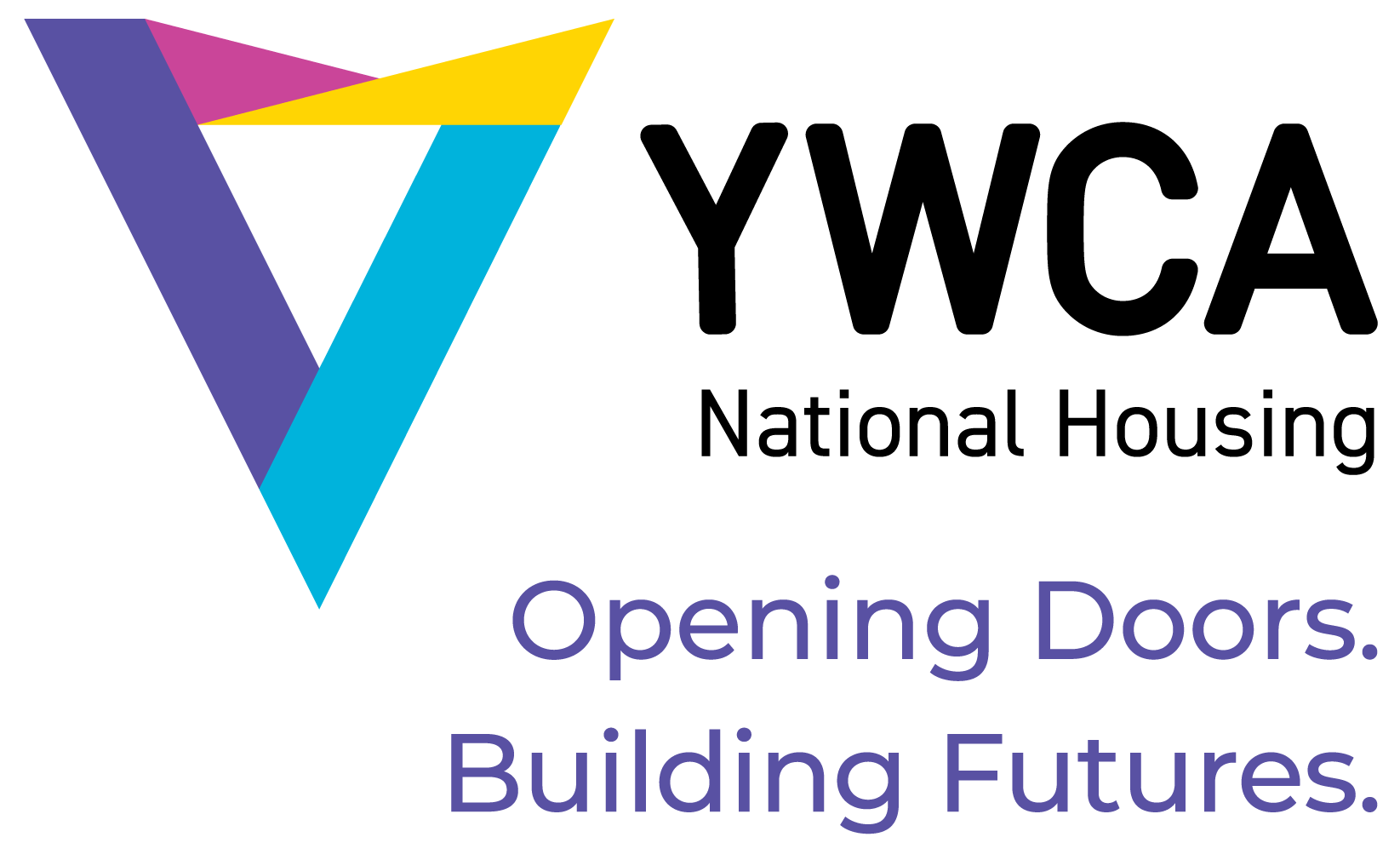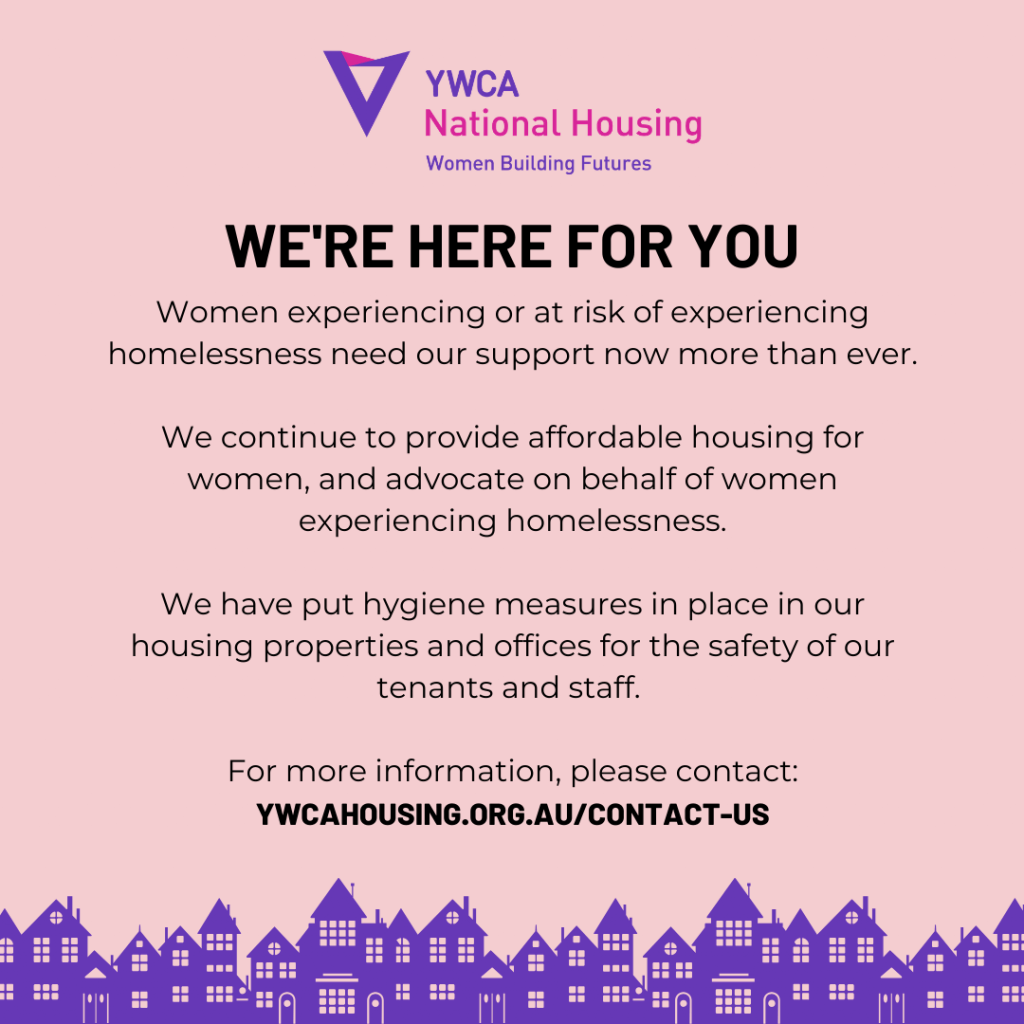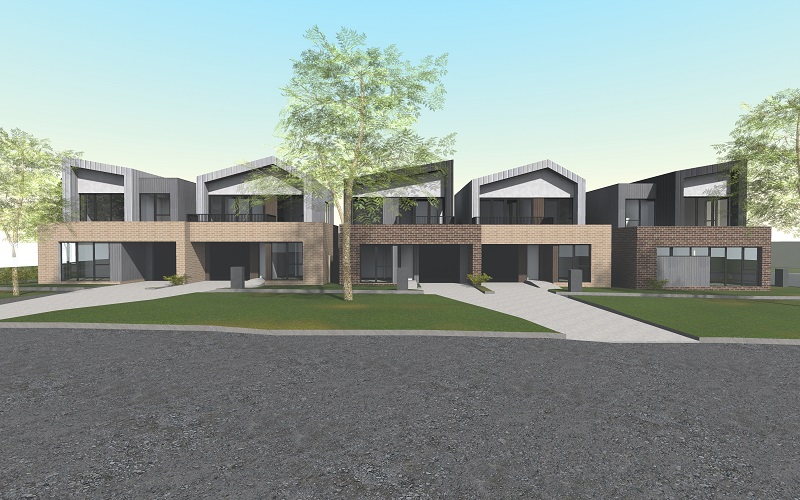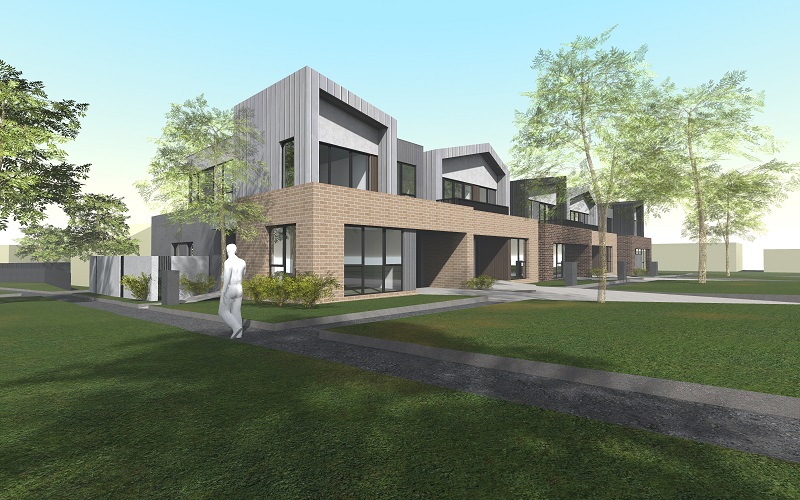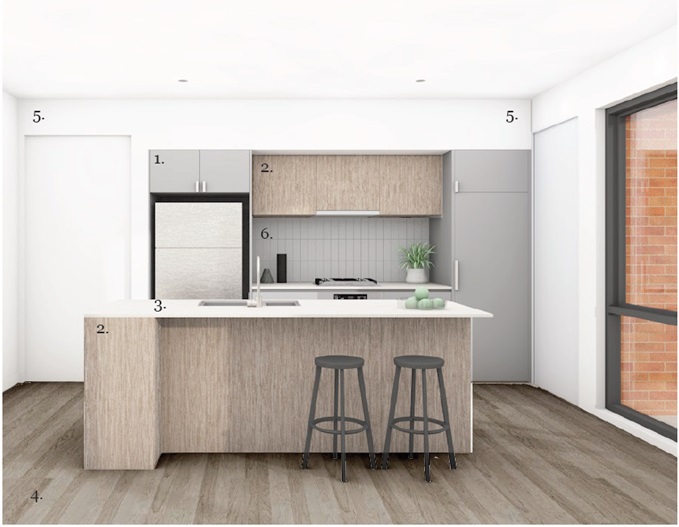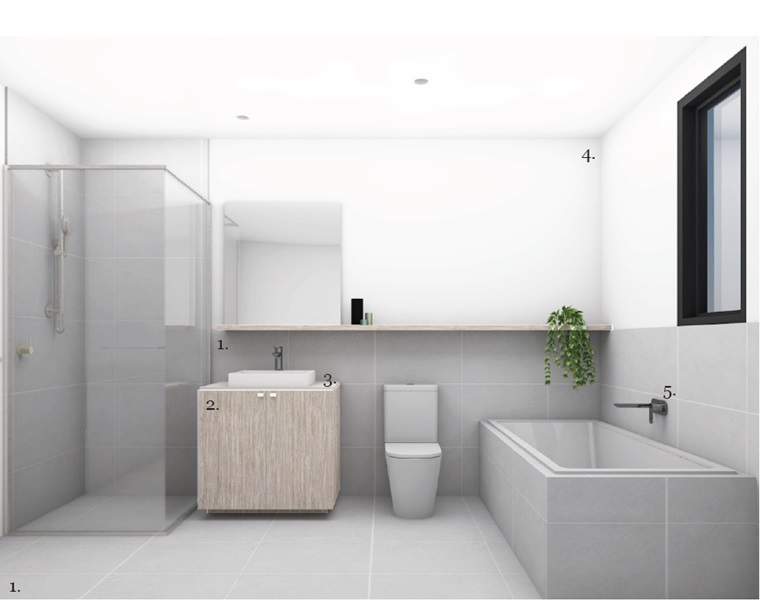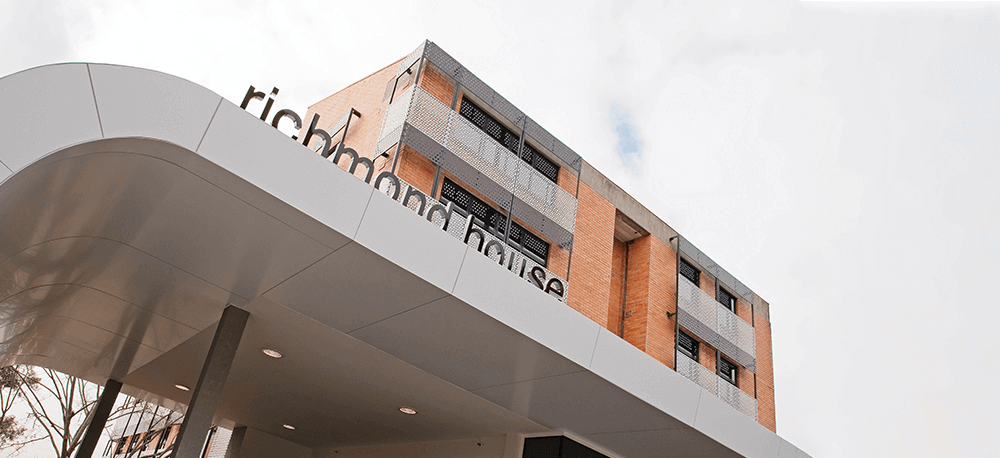Australia’s leading national women’s organisation is warning of an impending housing crisis for women and children escaping domestic and family violence during and after the COVID-19 lockdown.
YWCA Director of National Housing and Property Development Jan Berriman said the Federal Government’s COVID-19 pledge of $150 million to support an expected rise in demand for domestic and family violence services was welcomed but it would not go far enough to meet the rising need for safe housing for women and children at risk.
“There was not enough crisis, refuge, social or affordable housing stock to meet demand even before COVID-19,” Ms Berriman said. “With the number of domestic violence cases expected to rise significantly in the coming months, we will see a sharp increase in homelessness and families forced to live in unsuitable crisis accommodation.
“We need urgent action to increase affordable housing stock so women and children escaping violence have access to safe, long term accommodation.”
Ms Berriman said YWCA Australia was calling for a similar investment as the $5 billion 2009 Nation Building stimulus package which provided 20,000 new homes, the majority of which went to social housing.
“There is a huge risk that women will suffer in silence until the COVID-19 crisis has passed,” she warned. “While case workers expect a rise in domestic violence incidents during the COVID-19 pandemic, the full extent of the need for support and housing would not be known until after the crisis is over.
“We expect the impact to be similar to the bushfires earlier this year where some of our domestic and family violence services were seeing a doubling of serious threat cases after the immediate crisis had passed.
“It is then that they will need access to safe houses, counselling and employment services to get back on their feet and we need to be ready to support them.”
Ms Berriman said women over the age of 55, those from non-English speaking backgrounds, those with disability, LGBTIQA+ young people and Aboriginal and Torres Strait Islander women were particularly vulnerable to homelessness.
She said YWCA’s domestic and family violence services, and domestic violence services by other organisations were still open and available to support women at this time.
Women and homelessness risk:
- Women over 55 are the fastest growing cohort experiencing homelessness. There has been a 10% increase in homelessness among women since 2011. In particular, the number of older women experiencing homelessness grew 31% from 2011-2016.
- Lack of long–term affordable housing stock, so that women and children can’t move on from crisis accommodation. 90% of all applications to YWCA National Housing in the first six months of 2019 were unsuccessful due to lack of housing stock.
- Single women have been priced out of the rental market. A March 2019 Rental Affordability Snapshot showed that there were two affordable private rental properties in Australia at that time, for singles on Newstart.
Women in immediate danger should called Triple Zero (000) and ask for the Police.
People can also call 1800 RESPECT (1800 737 732) – the 24-hour national sexual assault, family and domestic violence counselling line for any Australian who has experienced, or is at risk of, family and domestic violence and/or sexual assault.
